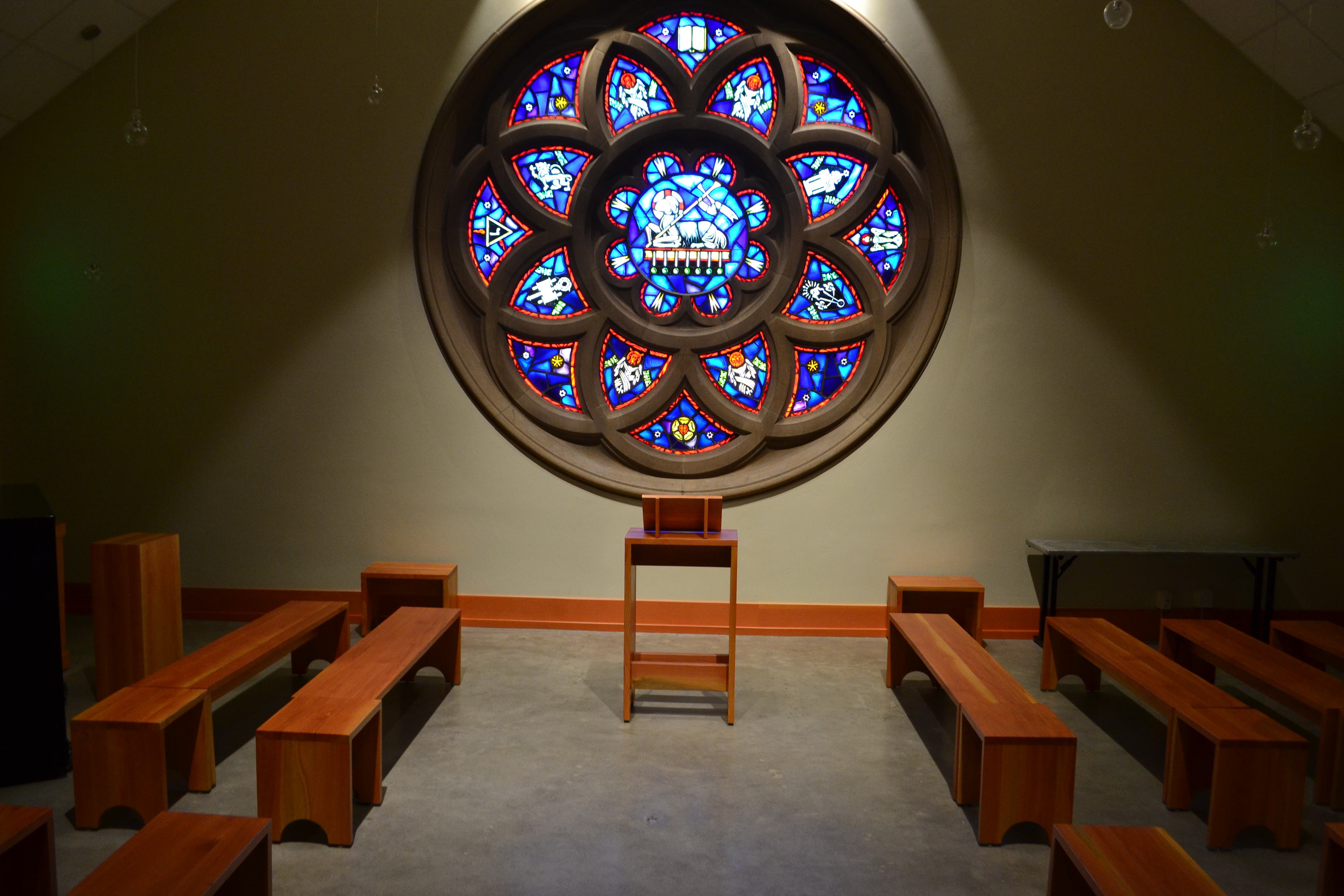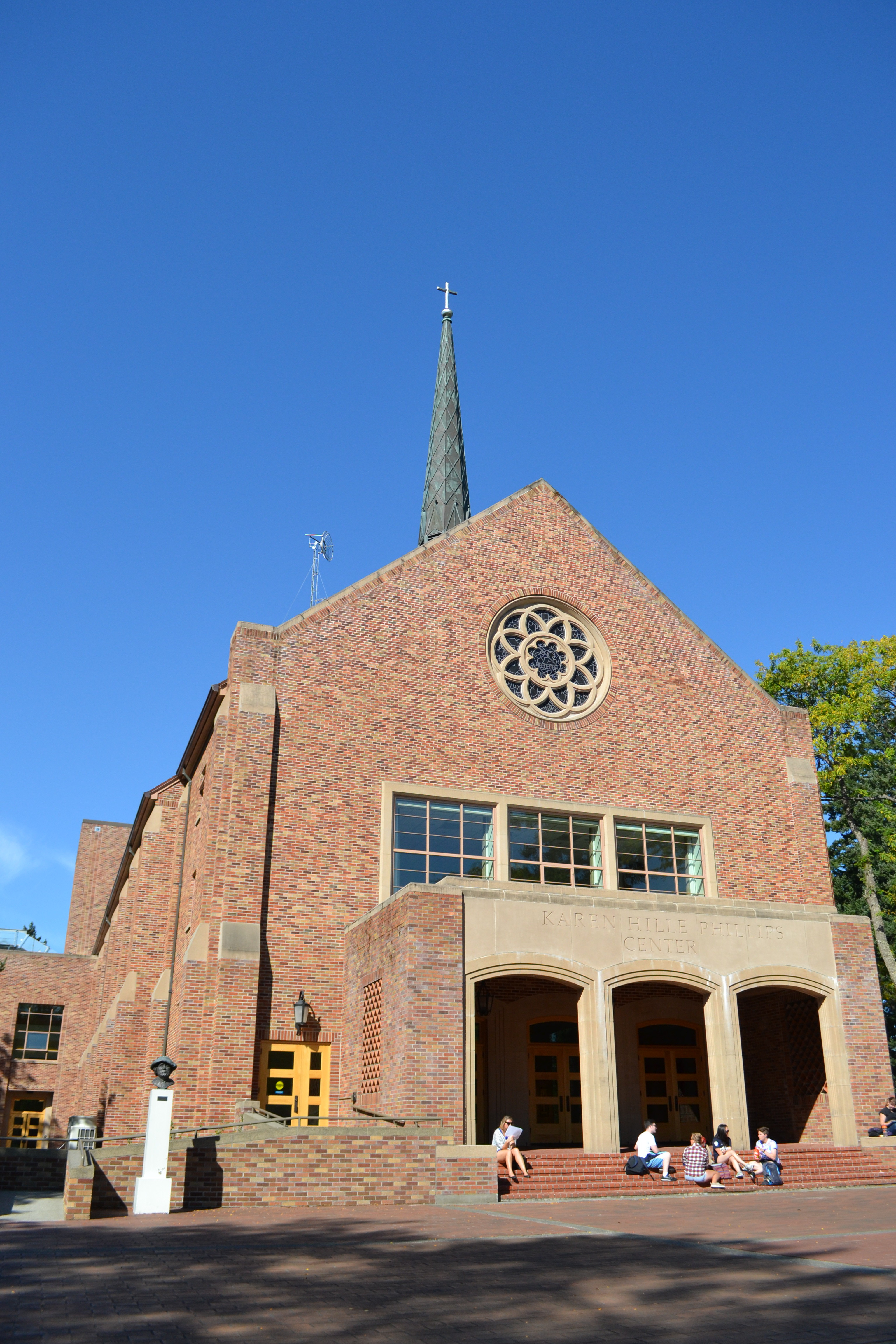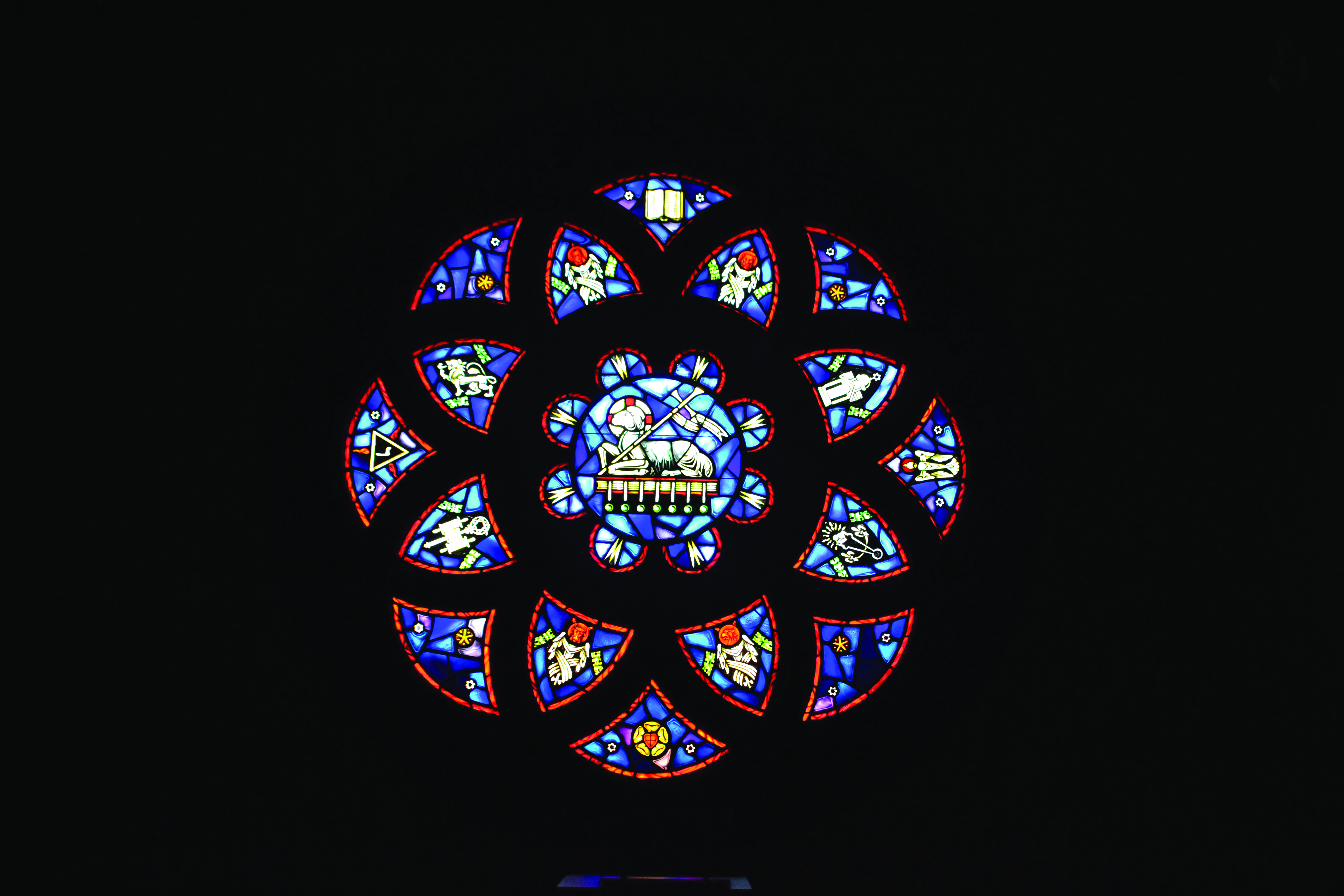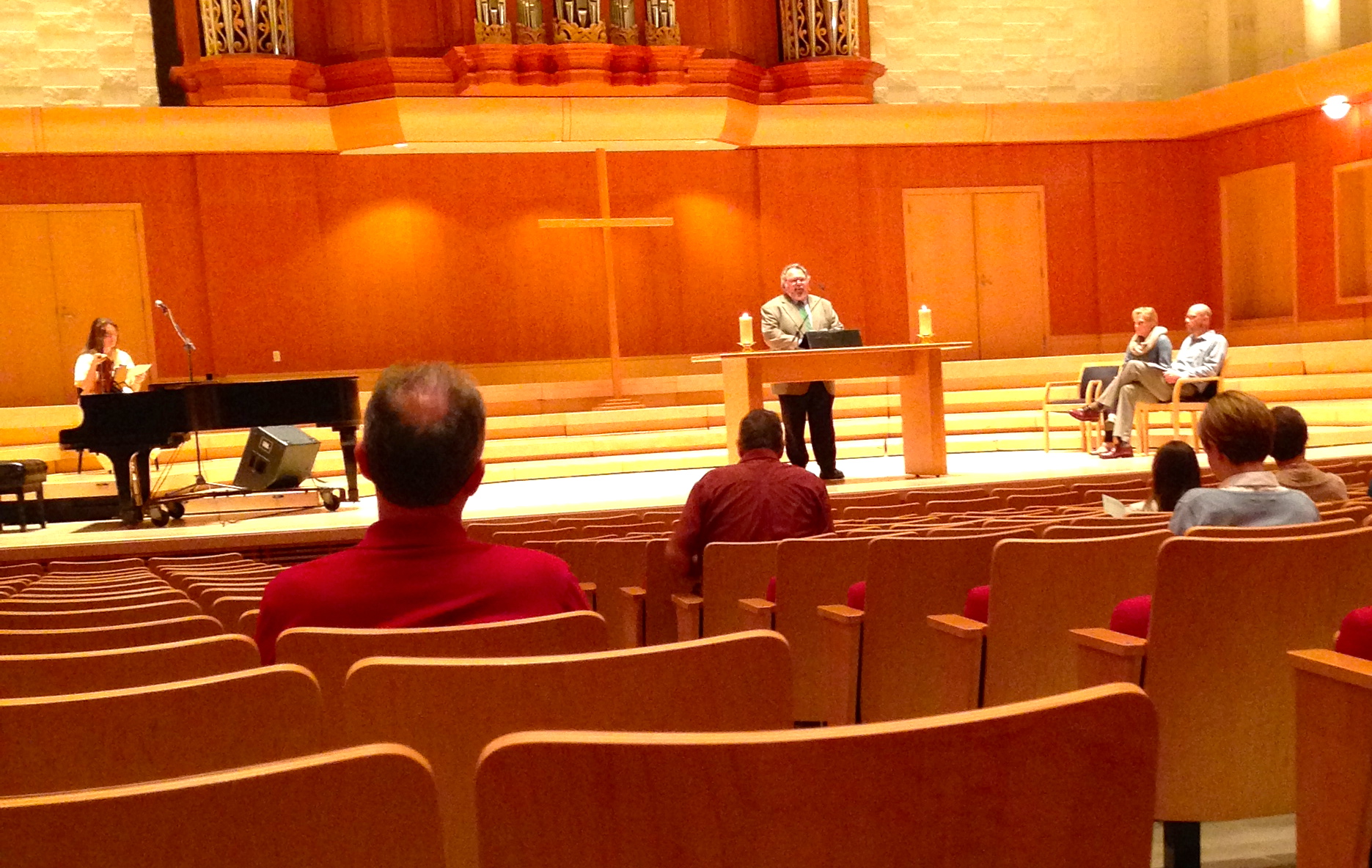The song goes: “That’s me in the corner, that’s me in the spotlight, losing my religion,” and in 2015, with all the changes around Pacific Lutheran University, we can’t help but think: is this PLU’s fate? Standing here, watching as we lose our religion.
“What we understand as public education is a Lutheran invention of the 16th century,” said Dr. Samuel Torvend, Professor of Religion and Lutheran Studies. “My parents were students here, and just about everyone had a Scandinavian surname, and were pretty white, and pretty blonde, and pretty Lutheran. That has changed dramatically at PLU just over the last 60 or 70 years.”
According to statistics from the Office of Admission, only about 17 percent of PLU students identify as Lutheran. Torvend explained that generational differences on the importance of religious affiliation and practice play a role in the lack of Lutheranism we see on campus. Another possible factor is the decline in the Lutheran population as a whole, he explained.
“Episcopalians, Lutherans, Presbyterians, Methodists and a whole range of what we could call Mainline Protestants warmly embraced birth control,” Torvend said after the public availability of this form of contraceptives in the mid-1960s. “Part of what we see [now] is declining birthrates among Lutherans, and other Mainline Protestants in this country, whereas among conservative evangelicals and fundamentalists, those groups who have not really accepted birth control the way the other groups did, you see birth rates increasing.”
Religious participation on campus, in terms of student organizations and attendance at Chapel and University Congregation, is lower than ever before. The Evangelical Lutheran Church in America Globe banner has been removed from ceremonies like Commencement and Convocation, where it used to stand by the PLU flag.
Why are we seeing change in religious groups, norms and expectations on campus this year?
The current interim campus pastor, the Rev. John Rosenberg said four students spoke with the President of PLU, Dr. Thomas W. Krise, last year telling him they were worried about the Campus Ministry and what would become of it when they graduated.
In response to their concerns, President Krise called for a ministry review.
With the ministry under review, the decision was made to only have one campus pastor instead of two. At the time, Rev. Dennis Sepper and Rev. Nancy Connor, husband and wife, served as the University Pastors, and had been for more than 20 years.
The two had to decide who would stay and who would step down. At the annual Christmas Concert in December of 2014, junior Kiana Norman said she “overheard Pastor Nancy [saying] she was happy to be the narrator [because it was] the last Christmas concert she would be a part of because she was retiring.”
Campus Ministry stewards were notified last Spring of the budget cuts. Connor’s departure was announced at the last chapel service of the 2014-2015 academic year.
It was also announced that Campus Ministry would be moved into the Office of Student Life, out of the control – and budget – of the Office of the President.
Sepper, who was to remain as the sole campus pastor after his wife left, resigned within two weeks of the end of the Spring 2015 semester. Pastor Dennis was contacted, and wished not to comment.
With both campus leaders leaving, PLU called an interim pastor to help lead the transition.

“According to the ongoing ministry review, we want to make Campus Ministry less institutional and more relational,” said the current interim campus pastor, Rev. John Rosenberg.
The ministry review began over a year ago before the recent announcement by Dr. Krise.
Before the current review, Rosenberg said PLU’s Campus Ministry hadn’t been reviewed in quite some time. The review team is made up of Synod staff, local pastors, PLU staff and faculty. Interviews and conversations were held with staff, faculty, and students – specifically Associated Students of PLU – and the University Congregation Officers.
“As far as changes go, we have an almost blank slate for Campus Ministry this year,” President of University Congregation Council, Tyler Dobies said. “From my discussions with Interim Pastor John, it is up to students to shape how Campus Ministry looks this year. Pastor John is looking to students to take the lead. With this in mind, I think it is an excellent leadership opportunity for returning and new students to get involved and to inform a new age for Campus Ministry.”
Rather than mourn or be concerned about recent events, Rosenberg said: “Pastor Dennis and Pastor Nancy were in ministry on this campus for more than 20 years. This is a pretty significant achievement, especially in the realm of college pastors,” and he’d hope people would focus on that instead.
Rosenberg went on to add that through the ministry review process, “there was going to be significant changes to Campus Ministry,” and that university-wide budget cuts, the movement of Campus Ministry from Office of the President to Office of Student Life, the elimination of one full time campus pastor position, the ministry review and Pastor Dennis and Pastor Nancy’s departure were all “coincidental and not causal.”
Later in September, the Office of Student Life will release a campus-wide survey for students’ spiritual needs as a way to assess campus ministry and its current programs.
Our Lutheran Heritage
Regardless of Lutheran student population, local Lutheran leaders founded and continue to fund PLU.
PLU was founded by the Rev. Bjug Harstad of the Norwegian Synod in 1890. Rev. Harstad – the namesake of Harstad Hall – served as a local pastor through his tenure as president and his time in the Pacific Northwest.

“It’s important to note that the Lutheran tradition of higher education is central to who we are and what makes us distinctive from other institutions,” said President Krise. “The Lutheran Reformation is unusual in that it was led by a University Professor, and there was a very significant educational component to the reform.”
Of the thirteen PLU presidents, nine have been Lutheran pastors or seminarians (those who were educated or trained at a school for ministry, but were not ordained).
The founding of PLU as a Liberal Arts school was part of widespread change in the mid-to-late 1800s, when Mainline Protestants began to offer coursework and degree paths in fields other than religious studies. PLU grew into a four-year accredited institution in 1914.
“An advantage of any religiously affiliated college is the fact that we can talk about issues of religion and spirituality in a way that’s very hard to do at secular private institutions and of course at public institutions,” President Krise added. “In the United States, virtually every private institution had its origin in some church or other religious organization, though many have become secular over the years, but it is good to note this as a long standing tradition of American higher education.”
Since its founding, PLU has operated under and received financial support from the Norwegian Synod, the United Norwegian
Lutheran Church of America, The American Lutheran Church (ALC), and now the Evangelical Lutheran Church in America (ELCA).
PLU is financially supported by more than 500 congregations of the ELCA’s Region 1, which includes Alaska, Washington, Oregon, Idaho and Montana. Representatives from these congregations make up the PLU Corporation, “which confirms the members of our governing body, the Board of Regents,” Dr. Krise said recently at the 2015-2016 Convocation Ceremony.
What about other universities?
University of Puget Sound
Founded in 1888
Affiliated with The United Methodist Church until 1980; currently independent of religious affiliation
Nine of the 14 presidents at UPS have also been pastors
Seattle Pacific University
Founded in 1891
Affiliated, operated, and funded by the Free Methodist Church
Requires all undergraduate students to sign a morality contract which includes abstaining from alcohol and sexual promiscuity, forbids undergraduates to marry before they graduate
Attendance at chapel and two other services held on campus each week are optional
Trinity Lutheran College
Founded as Lutheran Bible Institute in Seattle in 1944
Although Trinity has “Lutheran” in their name, the institution operates as an “independent Christian college”
Offers a certification path for Associates in Ministry (Deacons) for the Evangelical Lutheran Church in America
Chapel attendance is optional




















